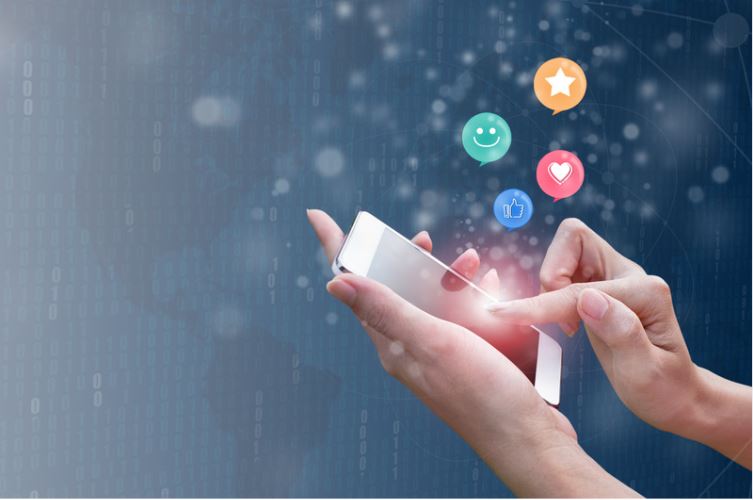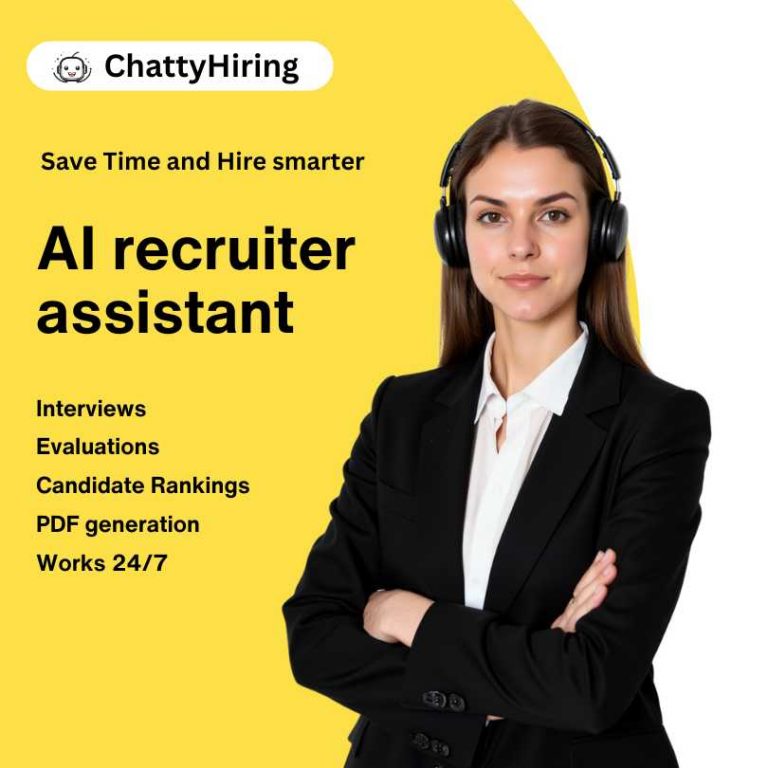As organizations strive to enhance their hiring processes, AI has emerged as a pivotal tool that not only streamlines operations but also transforms the way candidates are sourced, evaluated, and engaged. The integration of AI into recruitment practices is not merely a trend; it represents a fundamental change in how companies approach talent acquisition.
With the ability to analyze vast amounts of data, AI systems can identify patterns and insights that human recruiters might overlook, leading to more informed hiring decisions. Moreover, the adoption of AI in recruitment is fueled by the increasing demand for efficiency and effectiveness in hiring. Companies are facing a competitive labor market where attracting top talent is more challenging than ever.
Traditional recruitment methods often fall short in terms of speed and accuracy, prompting organizations to seek innovative solutions. AI technologies, such as machine learning algorithms and natural language processing, are being leveraged to automate repetitive tasks, enhance candidate matching, and provide data-driven insights. This evolution not only benefits employers but also enhances the candidate experience, making the hiring process more transparent and engaging.
Key Takeaways
- AI is revolutionizing the recruitment process by streamlining and automating various tasks, leading to more efficient and effective hiring.
- AI has significantly impacted recruitment processes by enabling faster candidate sourcing, screening, and matching, resulting in reduced time-to-hire and improved quality of hires.
- The rise of AI in candidate sourcing and screening has led to the use of advanced algorithms and machine learning to identify the best-fit candidates, saving time and resources for recruiters.
- AI plays a crucial role in improving diversity and inclusion in hiring by removing unconscious biases and promoting fair and equitable candidate evaluation.
- Ethical considerations in AI-driven recruitment are essential to ensure that the use of AI in hiring is fair, transparent, and compliant with privacy and anti-discrimination laws.
1. Avatars Interviewing Candidates
One of the most intriguing developments in AI hiring trends is the use of avatars to conduct candidate interviews. These AI-powered virtual agents simulate human interviewers, providing a consistent and unbiased assessment environment.
Companies like HireVue have pioneered this approach, utilizing AI to analyze candidates’ verbal and non-verbal cues during video interviews. The system evaluates factors such as tone of voice, facial expressions, and word choice to assess a candidate’s suitability for a role. This method not only standardizes the interview process but also allows for the evaluation of a larger number of candidates in a shorter time frame.
However, the implementation of AI avatars in interviews has sparked discussions about the ethical implications and the potential for overlooking human nuances. It’s crucial for organizations to balance technological efficiency with the need for human judgment in the hiring process.
2. Using WhatsApp for Communicating with Candidates
In today’s fast-paced world, instant communication platforms like WhatsApp have become integral to daily life. Recognizing this, recruiters are leveraging WhatsApp to communicate with candidates, providing a more immediate and personal interaction.
WhatsApp facilitates real-time communication, allowing recruiters to quickly share job details, schedule interviews, and answer candidate queries. This approach not only enhances the candidate experience but also increases engagement rates, as candidates are more likely to respond promptly on a platform they frequently use.
Moreover, integrating AI chatbots with WhatsApp can automate initial candidate interactions, such as answering frequently asked questions and collecting preliminary information, thereby freeing up recruiters to focus on more strategic tasks.
3. Ambitioning a Hiring Process of Less Than 10 Days
The traditional hiring process can be lengthy, often leading to the loss of top talent to competitors. To address this, organizations are aiming to streamline their recruitment processes to be completed in less than ten days.
AI plays a pivotal role in achieving this goal by automating various stages of recruitment. For instance, AI-driven tools can quickly screen resumes, conduct initial assessments through virtual interviews, and even predict a candidate’s potential fit within the company culture. By reducing manual intervention, the time taken from job posting to offer can be significantly decreased.
Additionally, AI can assist in coordinating schedules and sending timely reminders, ensuring that the process moves forward without unnecessary delays. This expedited approach not only benefits employers by filling vacancies swiftly but also enhances the candidate experience by reducing waiting times.
4. Hiring Directly from Social Networks, Without CVs
The traditional resume is becoming less central in the hiring process as recruiters turn to social networks to identify and evaluate potential candidates. Platforms like LinkedIn, GitHub, and even Instagram provide a wealth of information that can offer a more holistic view of a candidate’s skills, experiences, and personality.
AI tools can analyze data from these platforms to identify candidates who may not have applied through conventional channels. For example, by assessing a candidate’s contributions to open-source projects on GitHub or their professional endorsements on LinkedIn, AI can gauge expertise and industry reputation.
This approach allows recruiters to tap into passive talent pools and assess candidates based on real-world demonstrations of their abilities, rather than solely relying on self-reported information in a resume.
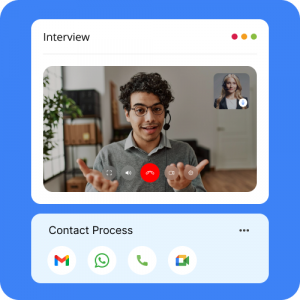
5. Automated Language Skills Detection
Effective communication is a critical skill in many roles, and assessing a candidate’s language proficiency has traditionally been a time-consuming process. AI-driven tools now offer automated language skills detection, streamlining this aspect of recruitment.
By analyzing a candidate’s verbal responses during interviews or written communication, AI can assess grammar, vocabulary, fluency, and even subtleties like tone and coherence. This objective evaluation ensures that candidates meet the language requirements of the role without the need for extensive manual testing.
Furthermore, these tools can provide immediate feedback, allowing recruiters to make informed decisions quickly and ensuring that only candidates with the requisite language skills progress through the hiring process.
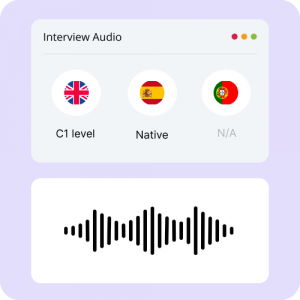
6. Engaging with AI Recruiters to Learn More About Positions
AI recruiters are becoming valuable resources for candidates seeking information about job positions. These AI-driven platforms can provide detailed insights into job roles, company culture, and expectations, helping candidates determine if a position aligns with their career goals.
For instance, AI chatbots can answer candidate queries in real-time, offering information about job responsibilities, required qualifications, and application procedures. This immediate access to information enhances the candidate experience and ensures that applicants have a clear understanding of the role before applying.
Additionally, AI recruiters can guide candidates through the application process, providing tips on resume optimization, interview preparation, and even personalized feedback based on the candidate’s profile.
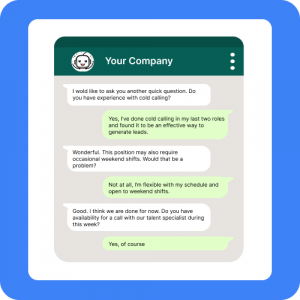
The Benefits and Challenges of AI Adoption in Recruitment
The adoption of AI in recruitment presents a myriad of benefits alongside notable challenges that organizations must navigate. On one hand, AI enhances efficiency by automating repetitive tasks, allowing recruiters to focus on strategic initiatives such as talent development and employer branding.
Additionally, the data-driven nature of AI enables organizations to make informed decisions based on objective criteria rather than subjective biases.
However, challenges such as algorithmic bias and ethical concerns cannot be overlooked. Organizations must invest time and resources into developing fair and transparent AI systems that prioritize diversity and inclusion while safeguarding candidate privacy. Furthermore, there is a need for ongoing training for recruiters to effectively leverage AI tools while maintaining a human touch in the hiring process.
If you’re interested in learning more about how AI is revolutionizing the recruiting process, check out this article on AI and WhatsApp in recruiting. This article explores how companies are using AI-powered chatbots on messaging platforms like WhatsApp to streamline their hiring process and engage with candidates more effectively. It’s a fascinating look at how technology is changing the way we find and hire top talent.
Frequently Asked Questions (FAQ)
Q1: How do AI avatars conduct interviews?
AI avatars conduct interviews by simulating human interviewers through video interfaces. They ask predefined questions and analyze candidates’ responses using natural language processing and machine learning algorithms to assess suitability for the role.
Q2: What are the benefits of using WhatsApp for candidate communication?
Using WhatsApp allows for real-time, direct communication with candidates, leading to faster response times, improved engagement, and a more personalized candidate experience.
Q3: How can AI help achieve a hiring process of less than 10 days?
AI streamlines various stages of recruitment by automating tasks such as resume screening, interview scheduling, and initial assessments, thereby significantly reducing the time required to complete the hiring process.
In conclusion, while the integration of AI into recruitment processes offers significant advantages in terms of efficiency and effectiveness, it also necessitates careful consideration of ethical implications and the importance of human involvement in decision-making.
As organizations continue to embrace these technologies, they must remain vigilant in addressing challenges while maximizing the benefits that AI can bring to talent acquisition strategies.
-

A passionate advocate for the future of HR innovation. With expertise in leveraging AI to revolutionize recruitment processes, Carlos has a clear vision: empower HR teams while creating meaningful candidate experiences.
View all posts

